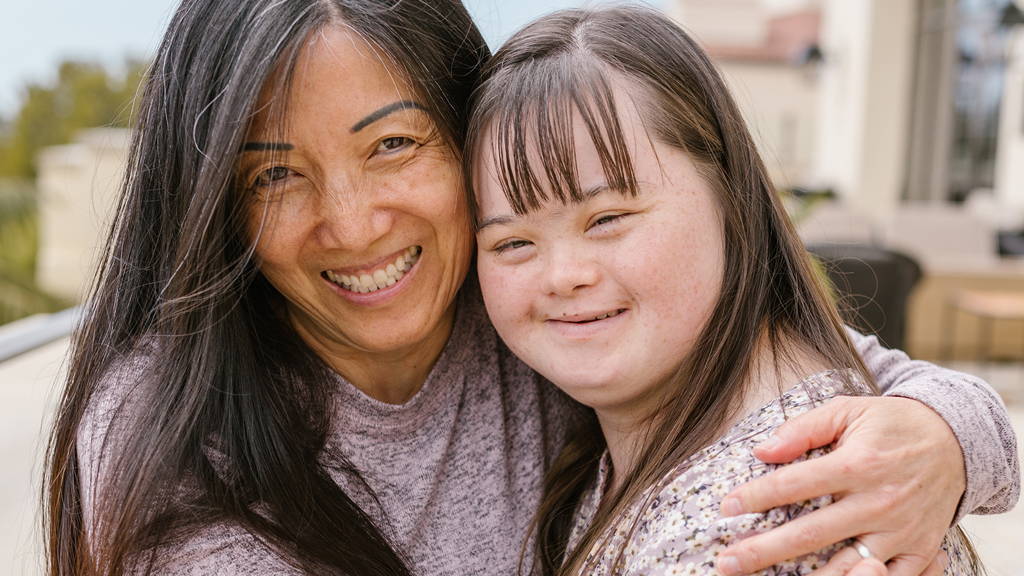Understanding the difference between neurodivergent and neurotypical behavior can be confusing. Never fear! Today, we’re looking at what each term means, spotting characteristics, and meaningful ways to offer support. First, let’s talk about neurodiversity…
Neurodiversity simply means that everyone’s brains develop in their own unique way. Because no two brains are totally alike, it’s impossible to give one definition of a “normal” brain. That’s why terms like “neurodivergent” and “neurotypical” help us understand and support our differences a little better.
What Does Neurodivergent Mean?
Neurodivergent is not a medical term. It simply helps describe how someone’s brain works without resorting to the words “normal” and “abnormal.” While most areas of medicine require a “normal” to understand if anything is wrong, the brain is a more complex matter.

In essence, the word “neurodivergent” helps to describe differently-abled people. Because being neurodivergent is not a condition, there is no diagnosis or “cure.”
However, people who identify as neurodivergent tend to have one or more of the following conditions:
- ASD (Autism Spectrum Disorder)
- ADHD (Attention Deficit Hyperactivity Disorder)
- SPD (Sensory Processing Disorders)
- Dyslexia
- Social Anxiety
- Tourette Syndrome
Neurodivergent characteristics might include poor eye contact, sensitivity to sensory input, no smiling or social responsiveness, excellent visual learning skills, high creativity, and the ability to hyperfocus.
What Does Neurotypical Mean?

Neurotypical means “not displaying or characterized by autistic or other neurologically atypical patterns of thought or behavior.” Or you can look at it this way: A neurotypical person is thought to have a brain that develops and functions in ways considered “typical” by society. Neurotypical characteristics include:
- Little or no difficulty dealing with sensory information
- Perform well under pressure
- Speak, move, and behave in “expected” ways
- Find it easy to engage in team activities
- Function well in complex social settings and large groups
- Deal well with change
- Able to learn in fast-paced, competitive settings
Like “neurodivergent,” “neurotypical” is not a condition or diagnosis. It is simply a word to acknowledge developmental differences. It’s important to note that most schools, places of employment, and institutions are designed to meet the needs of neurotypical individuals–just one of many reasons conversations around neurodiversity are essential.
How Can I Support My Neurodivergent Child?
The best way to determine whether your child is neurodivergent is to get the expert opinion of a healthcare professional. The great news is that there are many ways to support your neurodivergent child!

Make respect your top priority - Everyone deserves to be treated with dignity, even as we do our best to accommodate unique needs and learning styles
Listen and learn - Even though we can never fully understand someone else’s experience, listening and bearing witness to their feelings is powerful. Many neurodivergent people feel alone and left out, so a thoughtful ear can have a big impact!
Experiment with communication - Some neurodivergent people excel with written communication and prefer it to an in-person or face-to-face exchange. Try communicating with your child using their preferred method! You might be surprised at the difference.
Conclusion: Neurodivergent Versus Neurotypical
Neurodivergent kids can have different ways of communicating, experiencing their environment, and learning. But just because their brain doesn’t abide by what society deems “typical” doesn’t mean they don’t have remarkable potential and value.
Knowing the difference between neurodivergent and neurotypical is one of many ways you can support your child on their unique journey! And remember, Sensory Scout is here with useful blogs, sensory-friendly products, and an entire community of support and encouragement. You’ve got this!
 Skip to content
Skip to content

